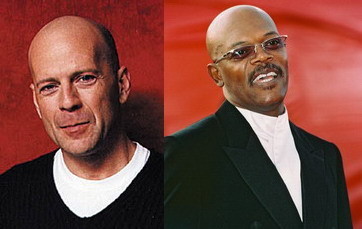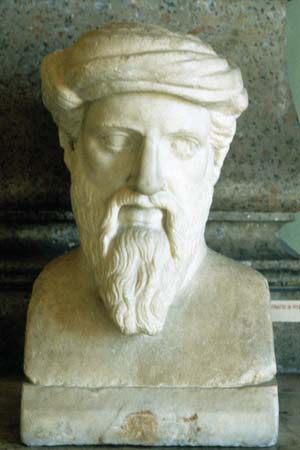The Self-Made Man, p. 1.

This is a story
about two twins who had been separated at birth and grew up in different parts of the world without any knowledge of each other. They also each suffered from two opposite problems in their lives. For example, the first twin, who went by the name Alphie, had become very successful, because he began his career with “papers” — that is: a birth certificate, a driver’s license, a university diploma etc… But the birth certificate was the important one, because that’s the one that qualified him to apply for and receive, without question, as if by some mysterious domino-effect, all the others.
The second twin,
who went by the name Olmeg, had been side-lined in life, because as bad luck would have it, his family had to quickly flee an impending war, and he lost all his original documents, including his visa-for-life that permitted the exodus, to begin with. Without a birth certificate from his country of origin he was never able to obtain any official documents that would have permitted him to go to school, get a job or obtain medical treatment.
These head-starts and set-backs respectively, some psychologists now believe, were responsible for the unusual events that punctuated the diametrically opposed lives of Alfie and Olmeg, which nevertheless, seemed to share equal misfortunes. For example: even though Alfie’s life was bespeckled by a string of successes strung together with no weak link, he was profoundly unhappy. Some say that it was because success came too easily to him. All he had to do was put on the right display and everything fell into place; flash the right cards as it were and everyone was happy. Nobody doubted nor challenged him… That is, not at work. In his romantic life however, things were a bit different.
You see, dear reader,
flashing cards is not always enough at home. Romantic people demand real content after a while and here is where Alfie could not pass the test. Alfie suffered from a disease as yet unknown by psychology and psychiatry at the time of this story… It now goes by the name of ‘monosyndrome,’ or ‘monodrome’ for short, or ‘mono’ for shorter. This disease is defined by something called a runaway loop, meaning that Alfie’s personality was built up of contents that ran in a closed loop so that every six months or so, the loop would return to its starting point, meaning that he would begin repeating himself both in speech and in behavior. Well you could imagine what a bore he became to his interlocutors and interembracers, dear reader. Who would want to listen to the same ‘taped recording’ or do exactly the same ‘rehearsed things’ every six months?

Now it occurred
to a very interesting pathologist, who later wrote a book on the two brothers, that what the two men needed was something like a ‘piece of each other’ to balance out their personality disorders. And, by some strange stroke of luck, this exchange of each other’s ‘pieces’ did indeed occur — which is how this story became famous in the annals of psycho- and socio- therapy.
On the other hand,
Olmeg suffered from the opposite syndrome. It was called, I believe, ‘anarchia nervosa’ which involved an inability to start anything, including romantic relationships. He just couldn’t get off the couch and get going, as it were. In other words, his personality was in very deep doldrums.
You see, dear reader,
the lives of these twins, unbeknownst to them, as if directed by providence, criss-crossed at an important juncture for the two men. The anarchaic came to reside in the country of his lost twin, the monodrome. This latter, had risen to become the nation’s first parole officer by virtue of being the first qualified penologist in the aforementioned nation. He obtained this great honour as a result of being the only man in the nation qualified to administer a newly minted course for the newly created post. Yes, you guessed right, dear reader: it was incumbent upon him to qualify for this first ever post by giving himself his own course. And this he did with great splendor accompanied by great fanfare at the most prestigious hotel in the capitol, where the nation’s President himself handed Alfie this first ever certificate, bearing the validating signature of Alfie himself, called a Doctor of Penology.
Even though publically this was a great honour, in private, deep in his heart, the newly minted doctor knew that this was all a sham and that he was still a monodrome — especially since he didn’t actually ‘teach himself’ anything for it. The whole thing was a pure formality involving only a signature. So disgusted was he on some days — bad days that is — that he often imagined to himself, that the certificate had been printed on toilet paper, and that he was a doctor of nothing.

His anarchaic brother,
on the other hand, had followed an opposite course: in order to get himself off the couch and on with his life, he had devised a plan to willingly perjure himself by freely confessing to, as if to take credit for finally doing something, a crime he did not commit. No one now remembers the details of this crime that landed him in prison and eventually in the office of the Chief Parole Officer for the nation — his brother.
However, it was discovered by the interesting pathologist alluded to earlier that Olmeg’s romantic life, prior to his incarceration, was indeed the one place where he did get off the couch. However, he rarely ended up back there with a girl because his romantic behavior was so inconsistent and erratic that his would be lovers gave up on him usually before he got started with the moves.
Hommage à Henri Bergson (19 mai 1959, la Sorbonne) La conférence menée par Gaston Berger. Avec la participation de Gabriel Marcel Maurice Merleau-Ponty Jean Wah
This unusual pathologist,
named Dr. Mallio (though some people put the i-ota in the beginning of the name spelling it ‘Maillo’) also a graduate of a new science called repentology founded by interviewing surviving subjects after the great war in Paris, was intrigued by the complementarity of the conditions of the two brothers, since it came to pass that both twins became his private patients.
Now, Dr. Ma(i)llio, had once attended a lecture by a man — a philosopher, no less — named Bergson, from whom he had garnered the idea that one half of life was inchoate and in perpetual de-generation, while the other half was iconic and in perpetual i-dentity.
Now as bad luck would have it,
society in general was also divided into halves espousing each of these principles as their first. The Positivists, who usually practiced something called techne, opted for the icon as their first principle and prided themselves on their ability — through experiments — to find the ‘secret mechanism’ that would permit them to predict the icons of the future (since they did accept that icons changed somewhat nevertheless, even though in theory, it was in their nature to be isomorphic and isometric at all times). The Negationists, who usually practiced something called ars, opted for the inchoate as their first principle and prided themselves on their ability — through creation — to solicit the ‘secret principle' to appear before the eyes and ears of everyone who could see and hear.
Now, this division of society into halves had bedeviled both twins in their search for a therapist and his therapy to resolve their romantic incontinence and unhappiness. For, neither could the Negationists free Dr. Alphie from feedback loop redundancy, nor could the Positivists free Mr. Olmeg from his aversion to prison food which made him vomit incessantly, since they each knew nothing about these things conversely — and vice versa for other reasons; since the positivists were all about prediction they had no interest in disproving their first principle by healing Dr. Alphie, and likewise with the negationists who had no interest in disproving their first principle by healing Mr. Olmeg.

And into this
epistemological qua methodological Grand Canyon stepped the good doctor of pathology Ma(i)llot (the ‘t’ was added at the same time as the ‘i’ became ambivalent) causing a great stir in the community of scholars who were predominantly adherents of the positivist camp to the glee of the community of artists who were of the negationist camp. Another thing that caused a great stir was the exotic provenance of this doctor when it was discovered that he hailed not from England or American or their environs, but from a little known Greek island known to have been the ancestral home of an ancient mathematician with suspect relationships to numbers and food, named Pythagoras — the man, that is — not the island.
End of Part One
more to come...








